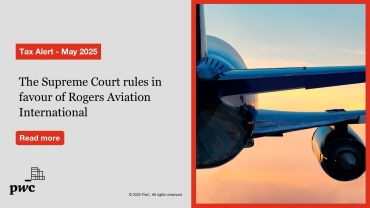
Taxation of trusts and foundations in light of the new Statement of Practice issued by the MRA
The MRA issued a Statement of Practice on 24 August 2021 to clarify the application of Section 73A (Companies treated as non-resident in Mauritius) and section 116 (Return of income by companies) of the Income Tax Act (“ITA”) to trusts and foundations.
Under the Income Tax Act, trusts and foundations fall within the definition of “company”. Any trust or foundation which is resident in Mauritius is liable to income tax on its chargeable income at the rate of 15%. According to Section 73 of the ITA, a trust is resident where it is administered in Mauritius and a majority of the trustees are resident in Mauritius or the settlor of the trust was resident at the time the instrument creating the trust was executed. A foundation is considered to be resident where it is registered in Mauritius or has its central management and control in Mauritius.
Useful links
Prior to the amendment brought by the Finance (Miscellaneous Provisions) Act 2021(“Finance Act 2021”), a trust could deposit a declaration of non-residence with the Mauritius Revenue Authority (“MRA”) and thus be exempt from income tax if it satisfies the following conditions:
The settlor is non-resident or holds a Global Business License (“GBL”); and
(i) All the beneficiaries are non-residents or hold GBLs; or
(ii) The trust is a purpose trust whose purpose is carried out outside Mauritius.
Similarly, a foundation was exempt from income tax where it deposits a declaration of non-residence with the MRA by satisfying the following conditions:
The founder is a non-resident or holds a GBL; and
All the beneficiaries are non-residents or hold GBLs.
Following the enactment of the Finance Act 2021, the tax exemption available to trusts and foundations has been repealed. Grandfathering provisions however exist up to the income year ending on 31 December 2024 which allow trusts or foundations set up before 30 June 2021 to continue to benefit from the exemption unless income derived is in respect of:
- new assets/activities such as intellectual property assets acquired after 30 June 2021; and
- specific assets or projects started after 30 June 2021.
According to Section 73A of the ITA, a company incorporated in Mauritius shall be treated as a non-resident if it is centrally managed and controlled (“CMC”) outside Mauritius. SP24/21 defines what would constitute ‘central management and control’ for a trust and a foundation.
A trust would have its CMC in Mauritius when:
- The trust is administered in Mauritius and a majority of the trustees are resident in Mauritius;
- The settlor of the trust was resident in Mauritius at the time the instrument creating the trust was executed or at such time as the settlor adds new property to the trust; and
- A majority of the beneficiaries or class of beneficiaries appointed under the terms of the trust are resident in Mauritius.
A foundation would have its CMC in Mauritius where:
- The founder is resident in Mauritius; and
- A majority of the beneficiaries appointed under the terms of a charter are resident in Mauritius.
Therefore, a trust or a foundation will be deemed to be non-resident by virtue of Section 73A of the ITA if it does not meet the criteria for CMC in Mauritius. The non-resident trust or foundation will be subject to source based taxation only i.e. only on income derived from Mauritius. The non-resident trust or foundation will be required to file an income tax return in order to declare and pay income tax on its Mauritius sourced income.
A trust or foundation is entitled to claim 80 % exemption on specified sources of income (including interest, dividend, etc) that fall within the Second Schedule to the ITA provided the conditions of substance are met.

Related reading:
Summary of Tax & Regulatory Measures
Our Comments:
SP 24/21 gives clarity on the CMC test for trusts and foundations.
Thus, a trust is non-resident if any of the following conditions are satisfied:
- The trust is administered outside Mauritius and a majority of the trustees are non-resident
- The settlor of the trust was non-resident at the time the instrument creating the trust was executed or at such time as the settlor adds new property to the trust
- A majority of the beneficiaries or class of beneficiaries appointed under the terms of the trust are non-resident
Similarly, a foundation is non-resident if either of the following conditions are satisfied:
- The founder is non-resident
- A majority of the beneficiaries are non-resident
Therefore, non-resident trusts and foundations will not be subject to tax in Mauritius where they will derive only foreign sourced income. The non-resident trusts and foundations will however be required to file a nil income tax return confirming that they do not have any Mauritius sourced income.
The new formula for PAYE calculations as included in the PAYE guidelines is welcome as it will enable those subject to solidarity levy to better manage their cash flows on a monthly basis.
How can we help you
Browse our related services:


















